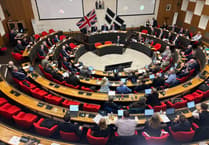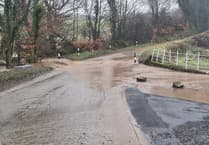Today, March 22, Cornish firefighters have won the campaign against the closure of their fire and rescue service's Critical Fire Control Centre after Cornwall Council Cabinet voted for a U-turn on the controversial proposal.
Cornwall Fire and Rescue Service had announced plans to scrap its entire control operation on money-saving grounds last September. Firefighter control staff handle calls from the public, provide safety guidance and deploy resources during incidents.
Fire Brigades Union fire control members responded to the proposed cuts by creating a detailed report highlighting the varied and essential nature of the work that they do.
They hosted visits from Cornwall Councillors, demonstrating how their professional skills, adaptability and local knowledge helped ensure successful resolutions to serious incidents. FBU members in other roles around Cornwall attended rallies in numbers outside multiple Council meetings in support, as well as providing witness evidence of the importance of fire control to all aspects of fire and rescue.
In response to the Fire Brigades Union’s campaigning, the Neighbourhood Overview Scrutiny Committee (NOSC), a cross-party committee of councillors, unanimously recommended to keep the control centre open 24/7 and improve it with new jobs, IT and funding.
Today, Cornwall Council Cabinet decided to uphold this recommendation and reverse plans to shut down the centre.
Gary Cotton, Fire Brigades Union brigade secretary for Cornwall said: “Fire and rescue control staff are vital to our service. They are the ones picking up fire calls from the public, identifying locations and mobilising resources. Firefighters across Cornwall will be relieved that the Council has finally recognised the value of the highly specialised skills and knowledge required, and the essential role that fire control plays in keeping the public safe.
'This U-turn represents a victory for our members, and for the safety of the people of Cornwall. We should never have had to fight against these absurd plans, but we have shown that we can and must push back against dangerous decisions made in the name of cost cutting.'





Comments
This article has no comments yet. Be the first to leave a comment.